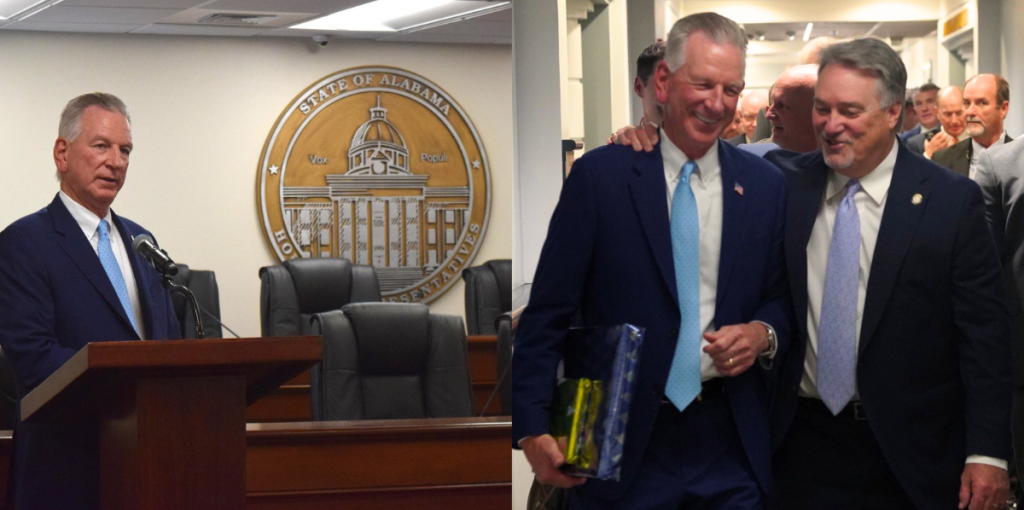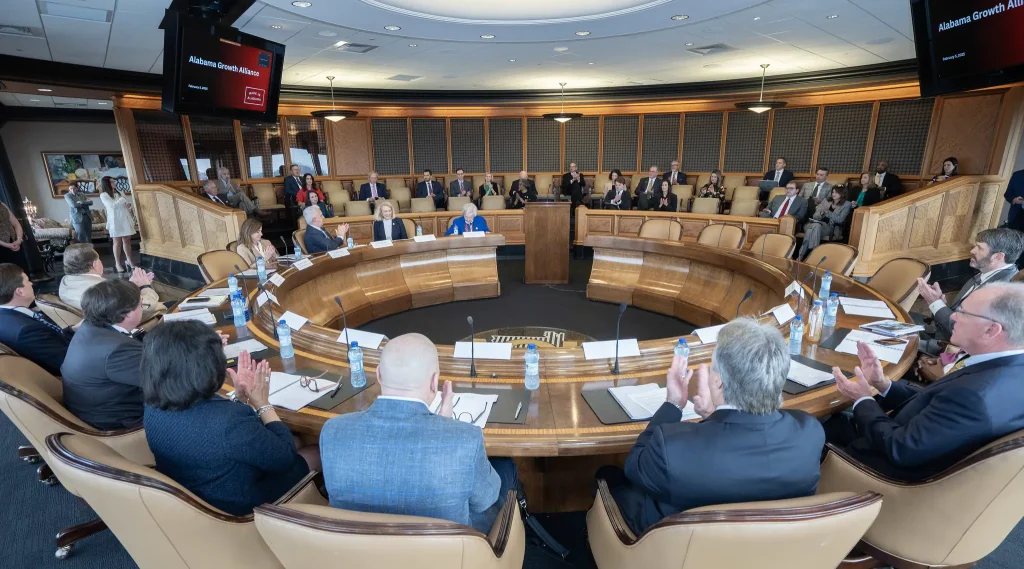While there is still work to be done, Senate Pro Tem Greg Reed and House Speaker Nathaniel Ledbetter said education is improving in Alabama.
Their remarks came Thursday during the annual Yellowhammer News Legislative Update in Montgomery. Reed and Ledbetter joined the Yellowhammer team for a Q&A session during the event.
“I think we had 20 different education areas that were below what they needed to be in reading, but now we’re down to just six,” Ledbetter said. “So we see a dramatic improvement in our reading and I think it will continue.”
He also spoke about a package of recently enacted educational bills which, according to the Speaker, “needs to get talked about.”
“It’s going to improve education,” he said. “I don’t have any question in my mind about that. We’ve seen it in the Literacy Act, I think we’ll see it in the Numeracy Act.
“The areas where we know we need help, we have to go do it. It’s time to stop talking about it and do it.”
He also called for increased accountability among school administrators and superintendents.
“I think the accountability of the failing schools needs to be with the administrators and we haven’t done that in the past,” said Ledbetter. “If you’re a principal or a superintendent, in of those failing schools, and you can’t improve those school scores over the next three years, somebody else needs to be in that job and I feel strongly about that.”
However, he said success should be rewarded.
“If you bring somebody in and they do a good job and they get those scores up then they need to be paid for it,” Ledbetter said. “If it’s an extra stipend or whatever, that needs to be done.”
Reed was optimistic about the future of education in the state but urged patience.
“In education, in particular, we’ve done some extraordinary things with numeracy, literacy, the TEAMS Act, and things that we have already done with Charter Schools Accountability Act,” he said. “But looking at pay for recruitment and retention of school teachers those kinds of things, we’ve done a lot of really good work.
“We have to have a little bit of patience to allow the methodologies we’ve tried to install to be able to do what we want them to do.”
Reed said the positive effects of the new policies are already beginning to show.
“We’ve made some changes in programs, we’ve spent hundreds of millions of dollars in particular avenues to try to improve outcomes and if we look just at the beginning those outcomes are beginning to change,” he said. “If we’ll just slow down long enough to let the system operate.”
Austen Shipley is a staff writer for Yellowhammer News.













